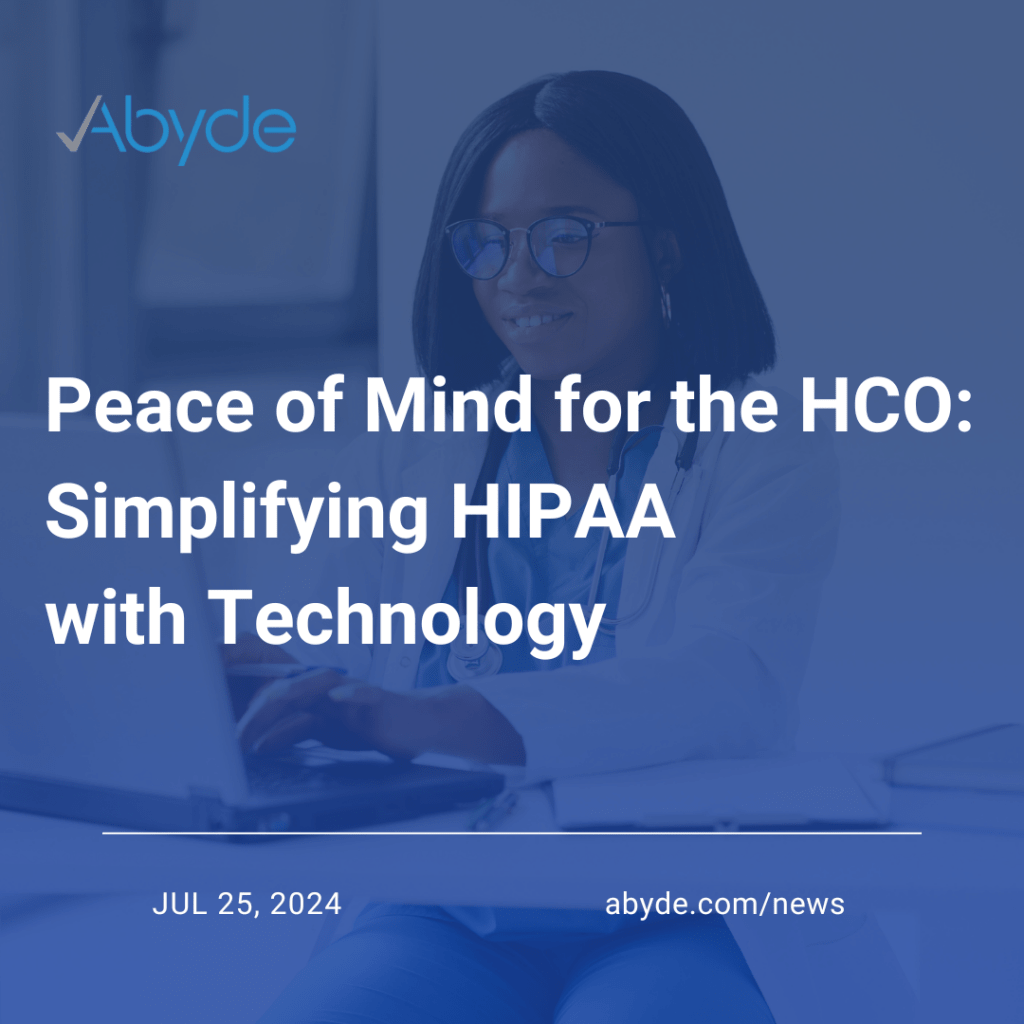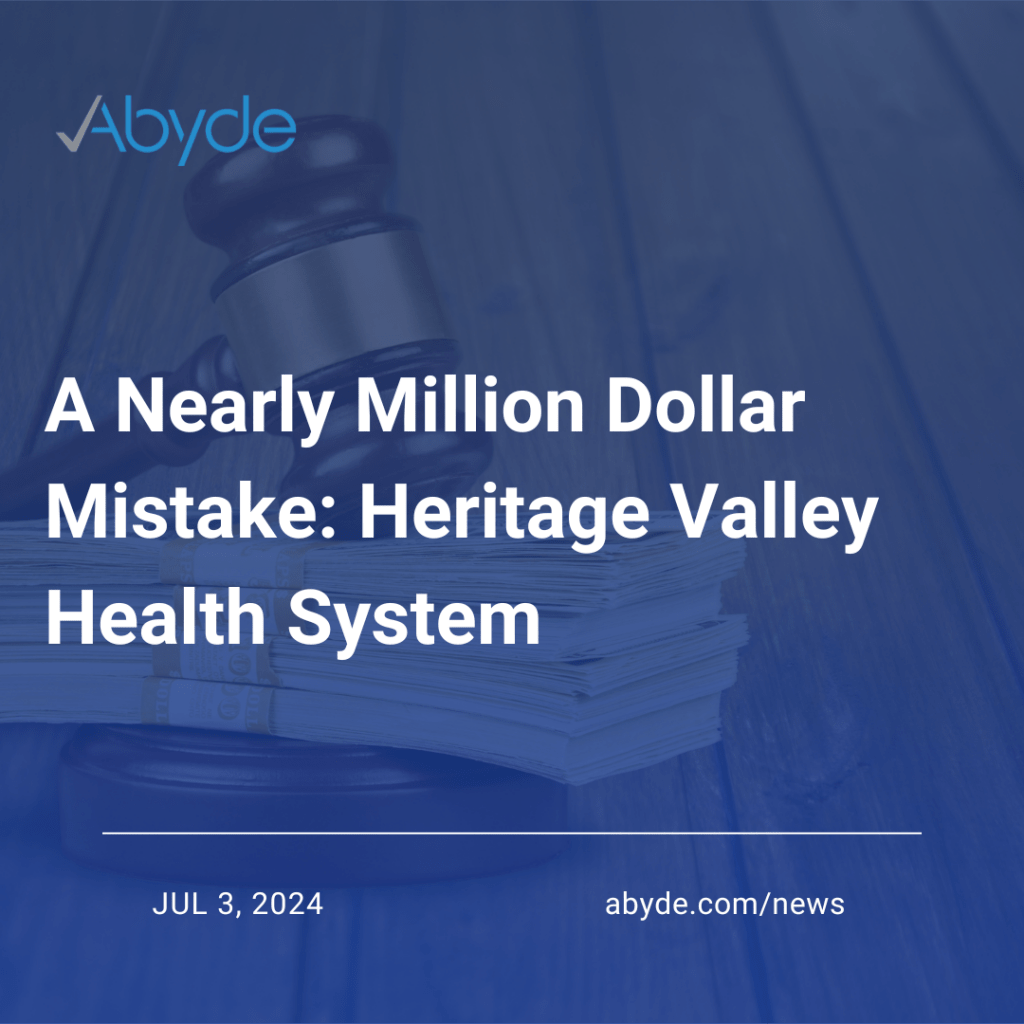July 25, 2024 Running a small medical practice is a juggling act. Staff wear many hats, and HIPAA compliance often gets squeezed in amongst other tasks. Did you know that physicians spend an average of 10 to 19 hours per week on administrative duties such as HIPAA tasks? HIPAA legislation outlines how Covered Entities and Business Associates must handle and secure patient PHI (Protected Health Information). Specifically, a HIPAA Compliance Officer (HCO) must be designated to ensure compliance maintenance. This is a significant yet essential role, and one that staff in a busy, small office have little time to attend to. Here’s the good news: There are better ways to manage HIPAA compliance efficiently if you’re the HCO. Let’s explore the key duties of an HCO and how you can handle the numerous obligations that come with the role. What is an HCO? The HCO must ensure the practice follows HIPAA requirements and sufficiently follows all physical, administrative, and technical safeguards to protect sensitive patient data. Being an HCO is a significant role and crucial for patient data security. Many HCOs wear multiple hats within an organization, such as serving as the office manager or a doctor. This can sometimes feel overwhelming, but it’s important to remember that HIPAA compliance is a shared commitment. Just like a conductor leads an orchestra, the HCO sets the tone. However, like every musician, from the violinist to the triangle player, needs to play their part flawlessly, everyone in the organization must follow HIPAA rules to create a harmony of patient privacy. What is an HCO Responsible for? The HCO role oversees everything related to a HIPAA program. This includes managing documentation, training, reviewing updated legislation, conducting the Security Risk Analysis, and much more. As the HCO, you must ensure proper compliance with HIPAA regulations within your practice and serve as the primary resource for your staff regarding HIPAA concerns. You also need to uphold patient access rights and ensure patients receive their medical records promptly. In case of a HIPAA violation or breach, the HCO will investigate and report the situation to the Office for Civil Rights (OCR) accordingly. The HCO acts as the main point of contact for the OCR and serves as the liaison if further investigation is required. Sounds like a lot of work, right? The Cure for HCO Stress By now, you know the role of an HCO is complex and can be time-consuming, especially when the individual manages numerous roles in a practice. The time spent on HIPAA tasks reduces the time available for patient care and other tasks. Inaccurate documentation due to human error can also lead to non-compliance with federal standards, adding stress and complexity to an HCO’s role. Many HCOs have their trusty HIPAA binder bursting with disorganized documentation. While this physical documentation might be an easy band-aid for an organization, as HIPAA continues to evolve, your binder should too. We can all agree there are much more enjoyable activities than handling HIPAA documentation. That’s where smart software solutions can streamline compliance for a practice. Instead of taking hours each week, this process can be reduced to minutes with intelligent software that can identify vulnerabilities and provide insights for improvement. That sounds a lot better, right? To learn more about how to streamline your compliance program, saving time and cost and providing peace of mind for the HCO, schedule an educational consultation today with an Abyde expert.
A Nearly Million Dollar Mistake: Heritage Valley Health System
July 3, 2024 Did you know that ransomware attacks are becoming increasingly common in healthcare? Since 2018, there has been a whopping 264% increase in large ransomware breaches. The devastating impact of a ransomware breach on an organization is wide-reaching, regardless of its size, as seen with the Change Healthcare breach. It’s imperative to take the proper precautions to ensure that Protected Health Information (PHI) is secure against hacking attempts. At the center of the latest fine, Heritage Valley Health System (HVHS), which operates in Pennsylvania, Ohio, and West Virginia, fell victim to ransomware attacks. These attacks infected HVHS systems, affecting sensitive patient information. As the Office for Civil Rights (OCR) reviewed the major data breach, several pieces of required documentation, such as a Security Risk Analysis (SRA) and an emergency plan, were absent. This missing documentation has led to a $950,000 fine and three years of corrective monitoring. Let’s explore what you can do to prevent this nearly million-dollar mistake. Importance of an SRA The purpose of the SRA is to review your risks and vulnerabilities regarding the management of ePHI (electronic Protected Health Information). This comprehensive analysis notes the physical, technical, and administrative controls to protect your patient’s PHI. Your SRA is documented proof that your organization understands its weaknesses and is making strides to address them and better protect patient data. While the SRA is a very important document, it is frequently missed. From the last round of random HIPAA audits, which have resumed recently, only 83% of practices and Business Associates could produce a sufficient SRA. SRAs are vital for practice compliance, showcasing growth, and best practices in safeguarding patient data. Check out our recent blog post here to learn more about the SRA. Why do I need plans in place? When running a medical practice, it’s important to be prepared for any situation that could arise. That’s why policies and procedures are so important. If your practice faces a scenario that may compromise PHI, your team needs easy access to a plan for handling the situation calmly. By addressing potential challenges well in advance, your team will feel empowered and confident in their ability to respond. Moreover, as part of your preventive measures, it’s beneficial to designate specific roles and responsibilities for your staff. This ensures that everyone is aware of their duties in any given situation. Cybersecurity Measures Unfortunately, healthcare practices have become very common victims of ransomware attacks. To prepare your organization for this, follow best cybersecurity practices, such as encryption, reviewing access controls, and creating unique sign-ons for all employees. Healthcare organizations should prioritize technical safeguards like encryption, access controls, and multi-factor authentication. However, security goes beyond technology. Implement security awareness training for staff, establish a data breach response plan, and maintain regular backups. Regularly conduct risk assessments and evaluate the security practices of third-party vendors. It’s important to consider partnering with an IT company offering valuable expertise. They can recommend the right tools, update you on evolving threats, and monitor your systems for suspicious activity. This layered approach will strengthen your systems and prepare you for potential attacks. How Smart Software Can Help Fines for HIPAA non-compliance can be staggering, but there are alternatives to the manual tracking and paper binders you may be used to. Intelligent software systems are designed to save you time and headaches and ultimately protect your practice to avoid audits and fines. Software empowers your team to manage your program easily and enables a culture of compliance in the office. It streamlines commonly overlooked requirements such as the SRA with dynamically created documentation and develops comprehensive plans, policies, and procedures so you stay current with the latest requirements. Better yet, when using cloud-based software solutions, you get 24/7 secure access and real-time updates when compliance regulations change. Schedule an educational consultation today to learn more about how software solutions can protect your practice.

